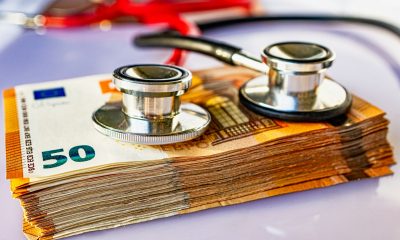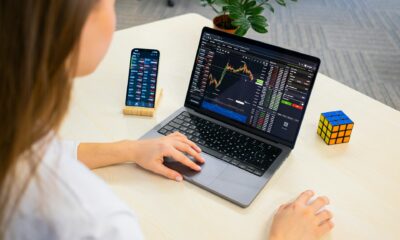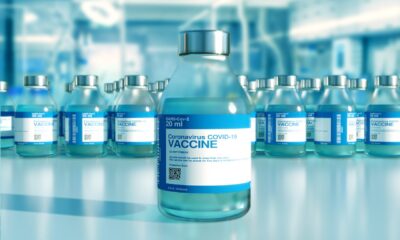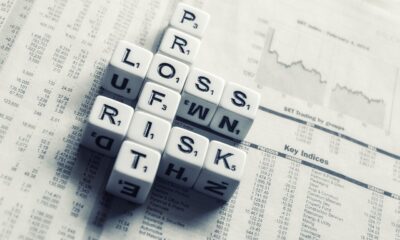Biotech
Bayer Reduces Losses in the First Nine Months and Sales Fall by 2.5%
Bayer reported €4.18 billion in third-quarter losses, mainly due to agricultural division asset impairment. Revenues fell 3.6% to €9.97 billion, with agriculture down 8.7% and pharmaceuticals 0.6%. The company forecasts €47-49 billion in 2023 revenues but lowered EBITDA expectations amid weak agricultural markets. Pharmaceuticals may see growth, though Xarelto’s patent expiry could impact profits.

Bayer regains momentum, but its turnover declines. The German chemical and pharmaceutical group has closed the first nine months of 2024 with a negative result of €2.22 billion, which means reducing by 48.2% the negative figures of €4.28 billion recorded in the same period of the previous year, according to the company, which has revised downwards several parameters of its forecasts for the year as a whole.
Bayer’s revenue through September was €34.87 billion, down 2.5% , including a 4.3% drop in the crops division, to €16.87 billion, while the pharmaceutical branch earned 0.2% less, at €13.47 billion, and the personal care business generated revenue of €4.30 billion, down 3.3%.
In the third quarter of the year, Bayer’s losses amounted to €4.18 billion, 8.3% lower than the negative result of the previous year, mainly due to the negative impact of €4.09 billion related to the impairment of intangible assets in the agricultural division.
On the other hand, revenues during the third quarter were €9.97 billion, 3.6% less , after the 8.7% drop in the turnover of the agricultural business, down to €3.98 billion, as well as the 0.6% drop in the pharmaceutical division, with €4.51 billion, although the personal care area grew by 0.2%, up to €1.41 billion.
Bayer’s pharmaceutical division’s revenues fell by 0.2% during the first nine months
“We have rapidly scaled up the new operating model and significantly realigned our pharmaceutical portfolio,” said Bayer CEO Bill Anderson.
However, the company maintains its forecast of revenues of between €47 and €49 billion for the year, after taking into account the exchange rate effect, although it has lowered its expectation of gross operating profit (EBITDA) before non-typical items to a range of between €10.4 and €10.7 billion, compared to the previous range of between €10.7 and €11.3 billion, given the worse forecasts for the crop business.
In this regard, Bayer’s CEO indicated that the development of the agricultural market “has been weaker than expected,” especially in Latin America, and the company continues to face cost pressure in the crop protection business, which is why it is reducing its 2024 targets for this division.
However, for 2025, it remains cautious regarding the agricultural market environment, while anticipating that “additional regulatory challenges and generic pricing pressures will put pressure on the crop protection business.”
The German group expects revenue from its drugs Nubeqa and Xarelto to impact its 2025 results
In terms of the pharmaceutical business, Anderson explained that Bayer is confident that the division will be able to meet the upper end of its forecasts this year and anticipates continued growth momentum for 2025 from cancer drug Nubeqa, while the loss of exclusivity on oral anticoagulant Xarelto will accelerate the impact in the opposite direction, putting even greater pressure on the EBITDA margin.
In the personal care sector, the executive also warned that the pace of growth will be slower than initially planned, in line with the market.
“Overall, we expect a subdued outlook for revenue and earnings for the coming year, with earnings likely to decline,” said Wolfgang Nickl, Bayer’s chief financial officer, stressing that the company plans to accelerate its cost and efficiency measures.
__
(Featured image by Nastya Dulhiier via Unsplash)
DISCLAIMER: This article was written by a third party contributor and does not reflect the opinion of Born2Invest, its management, staff or its associates. Please review our disclaimer for more information.
This article may include forward-looking statements. These forward-looking statements generally are identified by the words “believe,” “project,” “estimate,” “become,” “plan,” “will,” and similar expressions. These forward-looking statements involve known and unknown risks as well as uncertainties, including those discussed in the following cautionary statements and elsewhere in this article and on this site. Although the Company may believe that its expectations are based on reasonable assumptions, the actual results that the Company may achieve may differ materially from any forward-looking statements, which reflect the opinions of the management of the Company only as of the date hereof. Additionally, please make sure to read these important disclosures.
First published in PlantaDoce. A third-party contributor translated and adapted the article from the original. In case of discrepancy, the original will prevail.
Although we made reasonable efforts to provide accurate translations, some parts may be incorrect. Born2Invest assumes no responsibility for errors, omissions or ambiguities in the translations provided on this website. Any person or entity relying on translated content does so at their own risk. Born2Invest is not responsible for losses caused by such reliance on the accuracy or reliability of translated information. If you wish to report an error or inaccuracy in the translation, we encourage you to contact us.

-

 Crypto2 weeks ago
Crypto2 weeks agoBitcoin Rebounds Above $70K as Crypto Markets Show Fragile Signs of Recovery
-

 Crypto2 days ago
Crypto2 days agoIntesa Sanpaolo Signals Institutional Shift With Major Bitcoin ETF Investments
-

 Biotech1 week ago
Biotech1 week agoEurope Launches Personalized Cancer Medicine Initiative
-

 Crypto5 days ago
Crypto5 days agoBitcoin Wavers Below $70K as Crypto Market Struggles for Momentum

























